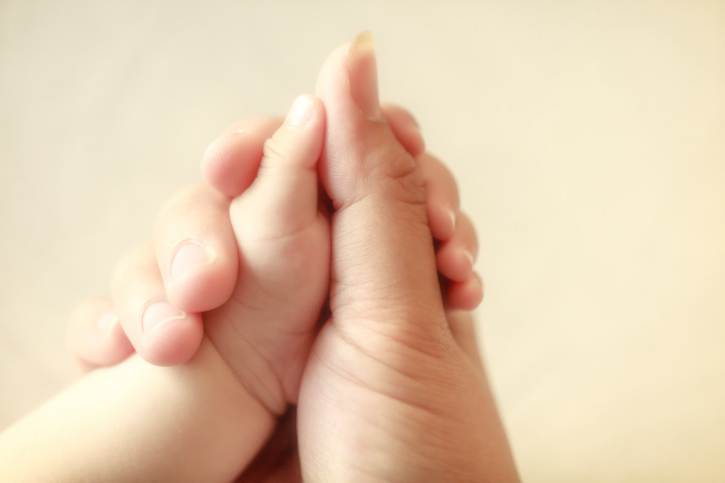Michelle and Kirstin, who both have rheumatoid arthritis, share their struggles and challenges during pregnancy.
Michelle Braithwaite, 46, from Selby, UK
I got my diagnosis when I was 19 and quickly went downhill from there. My rheumatoid was quite aggressive and would come and go in flare-ups. When I got to 35, my husband and I knew it was our last chance to have a baby and, as I hadn’t managed to get pregnant, we decided to try IVF.
My rheumatologist was concerned and told me that, if I went through with having a baby, he couldn’t guarantee I’d ever get my health back to the point I was currently at, as I’d have to come off my medication, not only while I was pregnant but as I went through IVF and tried to conceive. However, I really wanted a child.
For the first few weeks I was doing fine, but by the time I got to 37 weeks I was in a lot of pain. In the end, I had a caesarean section as my hips weren’t strong enough to cope with the birth. When they held my daughter up for me to see I felt ecstatic. I was so happy it was over and done with.
I was able to breastfeed for six weeks before I had to go back on my medication. By then I’d been off my medication for nearly 20 months and my health was suffering. I found it hard to walk because of the pain in my ankles and I struggled to pick up my new daughter.
I don’t know if I ever got back to the same level of health I was at before my pregnancy, but not far off. Women with rheumatoid don’t need to think they can’t have a baby. There is medication that will get you back on track and, for me, it was so worth it.
Kirstin, 47, from Middlesbrough, UK
I’d started to think I would never have children. I couldn’t imagine coming off my medication as, even on it, I was doing pretty poorly. I’d always wanted children though and, when I got to 36, I thought it’s now or never.
My rheumatologist told me it was a risk but that it was doable. I came off my medication and flared up straight away, meaning I had to be treated with steroids. I was very tired and often had to sleep in the day. My joints were swollen, hot, and painful, and I had flu-like symptoms all the time.
After I managed to get pregnant, I went back to see my rheumatologist. At that point I was taking anti-inflammatories and a disease modification drug which I’d been told was safe, but I was not taking steroids.
When I was 12 weeks pregnant, I saw my obstetrician for the first time. When he heard I was taking anti-inflammatories he was horrified. He told me I shouldn’t be on anti-inflammatories as they can cause birth defects, contrary to what I’d been told.
During the next few months, I went back and forth between my rheumatologist and obstetrician, being given conflicting information and told by each to ask for research to back up the other’s advice. I didn’t have the confidence or assertiveness to say hang on, I’m the pregnant woman, you go back and speak to each other. I was anxious and stressed. I did my own research but couldn’t make heads or tails of what I found.
About four weeks after the birth of my baby boy, I went back on medication and I actually got better than I had been before, but it was hard while my son was young. Still, I knew it would be. I’m a trained nurse so I didn’t have my head in the clouds.
After I had my son I was asked to speak at a conference as my team thought that specialists should hear about my experiences. I told them that my obstetrician and rheumatologist should have at least had a phone conversation, if not a meeting. After I spoke, there was a big debate among the specialists about how things could be improved.
Doing the conference was scary but cathartic, and everyone congratulated me on my bravery at speaking out. It was hard though. Boy did I sweat! However, I knew I needed to say something: there needs to be more clarity between specialists about what’s safe.

